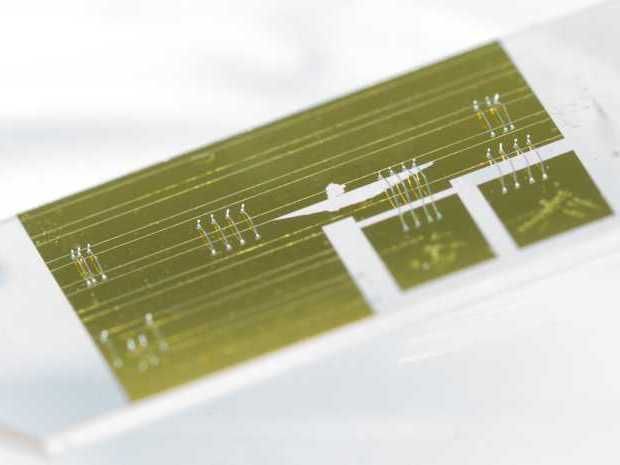It's snowing plastic
New technique detects minute particles of plastics in snow, rain and even soil
The snow may be melting, but it is leaving pollution behind in the form of micro- and nano-plastics according to a McGill study that was recently published in Environmental Pollution. The pollution is largely due to the relatively soluble plastics found in antifreeze products (polyethylene glycols) that can become airborne and picked up by the snow.

Symbolic image
Photo by Craig Whitehead on Unsplash
The researchers used a new technique that they have developed to analyze snow samples collected in April 2019 in Montreal for both micro- and nano-sized particles of various plastics. The McGill technique is orders of magnitude more sensitive than any of the other current methods used for tracing plastic in the environment. It allows scientists to detect ultra-trace quantities of many of the most common soluble and insoluble plastics in snow, water, rainfall, and even in soil samples once they have been separated - down to the level of a picogram (or one trillionth of a gram). It is based on using nano-structured mass spectrometry and, unlike other techniques currently in use, the new technique is both recyclable and based on sustainable practices.
"It is important to be able to detect even trace quantities of plastics in the environment," says senior author, Parisa Ariya, from McGill's Departments of Chemistry and Atmospheric and Oceanic Sciences. "Though these plastics may be harmless in themselves, they can pick up toxic organic matter and heavy metals from the environment, which can damage human cells and organs."
The first author, Zi Wang, a PhD Candidate at McGill adds, "Our hope is that this new technique can be used by scientists in different domains gain key information about the quantity of micro- and nano-plastics in urban environments in order to better address their impacts on the ecosystem and on human health."
Original publication
Other news from the department science
Most read news
More news from our other portals
See the theme worlds for related content
Topic World Mass Spectrometry
Mass spectrometry enables us to detect and identify molecules and reveal their structure. Whether in chemistry, biochemistry or forensics - mass spectrometry opens up unexpected insights into the composition of our world. Immerse yourself in the fascinating world of mass spectrometry!

Topic World Mass Spectrometry
Mass spectrometry enables us to detect and identify molecules and reveal their structure. Whether in chemistry, biochemistry or forensics - mass spectrometry opens up unexpected insights into the composition of our world. Immerse yourself in the fascinating world of mass spectrometry!
























































